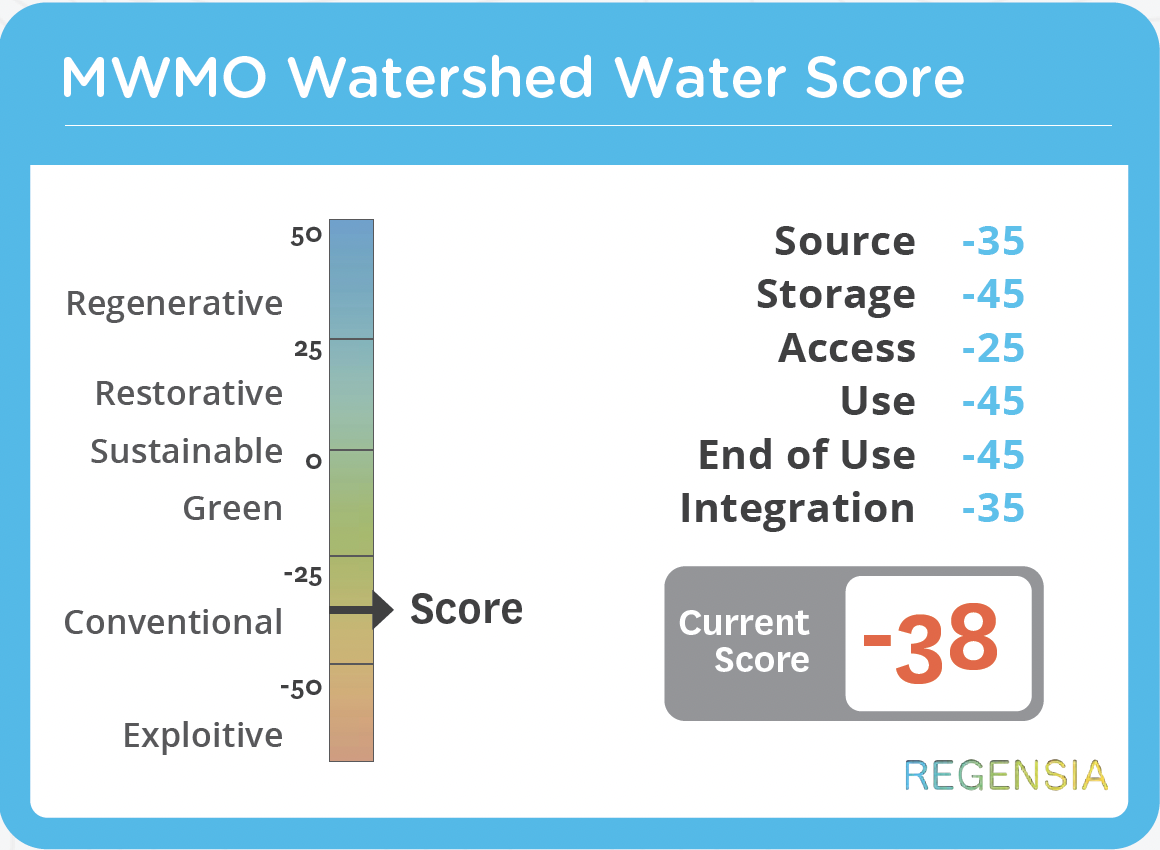URBAN WATERSHED ASSESSMENT | MINNEAPOLIS, MINNESOTA

The Mississippi River (pictured outside of the MWMO’s office) is the lifeline of the Watershed
CLIENT | Mississippi Watershed Management Organization (MWMO)
SITE | Minneapolis and Surrounding Cities (40-square-mile urban watershed)
____________
THE CHALLENGE
The Mississippi Watershed Management Organization (MWMO) manages and protects water and habitat across a fully developed urban watershed in Minneapolis and neighboring cities. Seeking to move beyond conventional stormwater and infrastructure management, the MWMO aimed to understand how a restorative water approach could reshape its systems and guide future investments, including a potential pilot project.

Preliminary scorecard for the Watershed’s water system performance, which accounts for stormwater, wastewater, and water supply
OUR ROLE
MWMO contracted Regensia’s Joshua Foss to prepare a comprehensive urban watershed assessment and restorative strategy. The report included:
- Differentiating conventional vs. restorative water management approaches
- Benchmarking current watershed infrastructure (drinking water, wastewater, stormwater, and surface water) against Net Positive goals
- Establishing the potential role of Integrated Utility Hubs (IUHs) in regenerative watershed design
- Modeling three IUH scenarios to demonstrate scalability and versatility
- Conducting siting analysis and cost-benefit evaluation of a network of IUHs within the watershed
- Outlining a clear value proposition for stakeholders, along with recommendations for next steps
INNOVATION & DESIGN
The study introduced the Integrated Utility Hub concept as a novel solution for watershed-scale resilience. IUHs were modeled to illustrate how distributed hubs could:
- Localize treatment and resource recovery
- Enhance water security and ecosystem health
- Generate co-benefits across energy, food, and waste systems
This positioned regenerative water management as both an infrastructure and governance innovation for urban watersheds.
RESULTS & IMPACT
- Provided MWMO with a clear framework and roadmap for transitioning toward restorative water management.
- Equipped the organization to engage stakeholders across the Twin Cities in building a collaborative leadership team.
- Catalyzed the development of a detailed IUH design and feasibility study, laying the groundwork for a pilot facility.

